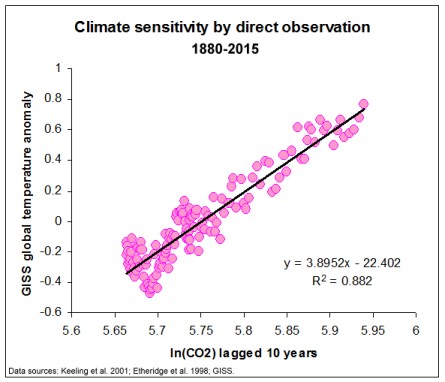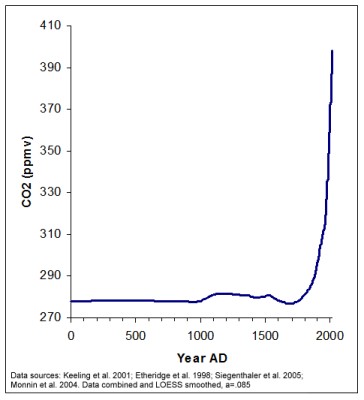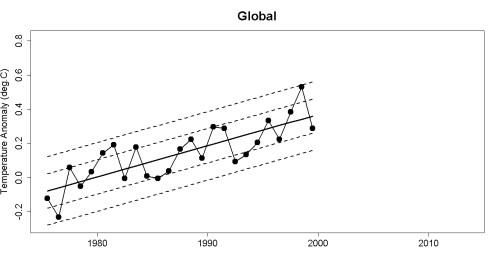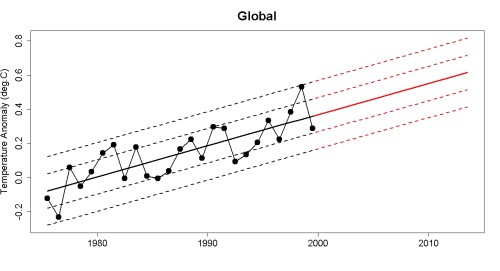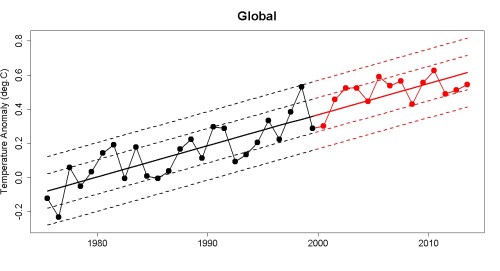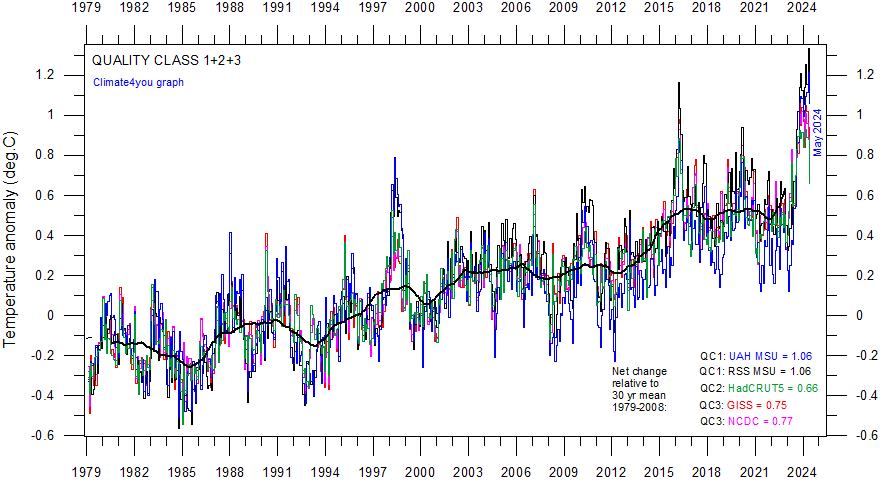You claim that we know with precision what the CO2 signal in the climate is while also claiming that we aren't entirely sure about everything else.
Nope, not what I said at all. But I do have hopes that someday you will learn how to read.
Well, that is what you said. You said that the CO2 warming contribution to the atmosphere was derived through "quantum physics". :roll:
This is how cops know when a perp is lying: he keeps changing his story.
A different number than the 2-3 C range you incorrectly quoted for the IPCC.
Denier
FAIL.
If the warming caused by CO2 doubling is 1.5C then there is no added sensitivity and CO2 would follow the lab logarithmic curve and cease to be a concern.
Wrong on two counts. First, sensitivity to greenhouse gases always follows a logarithmic curve, even with the presence of feedbacks. As this graph shows:
And second, if you think that CO2 isn't a concern, then certainly you will have no trouble answering a simple question:
At what point will this trend stop
?
You do realize that GISS and HADCRUT make many many "corrections" yearly as well, yes? You do realize that GISS and HADCRUT data points are almost all adjusted from the raw data on a monthly basis, yes?
Sure, but surface corrections are derived from
the data itself indicating a break in record continuity, and therefore a need for adjustment. With satellites, everything is far more delicate, and far less straightforward.
So you claim that UAH and RSS make many many corrections to the data, and then settle on GISS that infills missing data with in the global record with artificial data?
It's not artificial at all. The data from a surface station contains
more information that the temperature at a single given point, because weather systems are far larger than a single point. So that single point measurement contains information about the entire airmass, which is typically hundreds of km wide.
Your attempt to cover for your cherry picking the warmest climate record is defeated by your own rationale.
Then why don't we agree to use BEST
? Even Anthony Watts agreed that their procedure is impeccable. Of course, the BEST trend 1980-2014 is .165°/decade, while GISS is .158°C/decade, so I don't think you've got a leg to stand on. But hey, that's never stopped you before.
Oh, it's absolutely true.
You, sir, are a liar. I await your apology.
Well first I do read climate studies, have read climate studies for two decades, but at this point I have restricted my reading to the studies whose findings amount to more than a cheering section. I have long concluded that the AGW dogma is incapable of describing what the climate data is actually showing. When a study surfaces that claims to have a better model I'll read it.
Same question: how do you know climate studies are inaccurate, if you refuse to read them
? Your claim that "we don't know enough" amounts to nothing more than "
I haven't yet read enough, and I
refuse to read enough."
Denier
FAIL.
This is an odd claim for you to make, but then you don't really seem to understand statistics. If a flat-line trend fits within the confidence interval of a trend then the trend is statistically insignificant.
No, it's you who don't understand statistics. A flat-line trend is the wrong prior. The correct prior is the
existing long-term trend. If you have to shorten your view to the tail end of the dataset to claim statistical insigificance, then you
also have to prove that said statistical insignificance is not an artifact of your data selection process. You haven't done that, nor has anyone else.

